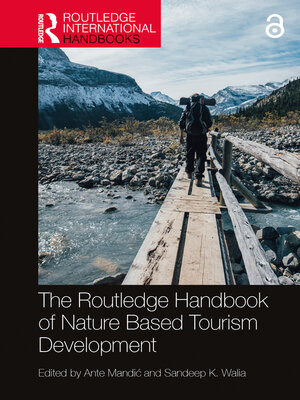The Routledge Handbook of Nature Based Tourism Development
ebook ∣ Routledge International Handbooks
By Ante Mandić

Sign up to save your library
With an OverDrive account, you can save your favorite libraries for at-a-glance information about availability. Find out more about OverDrive accounts.
Find this title in Libby, the library reading app by OverDrive.



Search for a digital library with this title
Title found at these libraries:
| Loading... |
This handbook offers a comprehensive overview of the themes and concepts related to nature-based tourism development. Providing interdisciplinary insights from leading researchers, academics, and practitioners across the globe, it delivers a critical and timely contribution to the knowledge around nature-based tourism.
Nature-based tourism is currently the fastest-growing tourism sector globally and for many destinations, the most significant tourism segment. Organized into five parts, this handbook provides contemporary and cutting-edge perspectives on core topics and explores their linkages. It considers, among others, various natural settings and natural attractions where nature-based tourism can be exercised, including: protected and conserved areas, islands, and mountains; the emerging themes shaping the contemporary nature-based tourism development, including ethics, Sustainable Development Goals, COVID-19 crisis, over-tourism, climate change, resilience; and new approaches toward the visitor management and low-impact experience design, including regenerative and transformative tourism, destination stewardship and pro-environmental behaviour. Part I introduces the concept of nature-based tourism and the emerging challenges in the field. Part II explores the key components in the management and planning of nature-based tourism development. In Part III the handbook focuses on visitor experience design and management and Part IV highlights the impacts of nature-based tourism. Part V examines the future of nature-based tourism and possible solutions to mitigate associated challenges in the field.
The handbook offers a valuable contribution with a systematic outlook of the phenomenon of nature-based tourism and critical perspectives on key concepts, policy, and practice. It shares current knowledge, innovative tools, and sustainable solutions with substantial evidence and societal impact. The book will appeal to students, researchers, and professionals in the fields of tourism, human geography, leisure studies, business studies, and sociology.
Chapter 12 of this book is freely available as a downloadable Open
Access PDF at http://www.taylorfrancis.com under a Creative Commons
Attribution-Non Commercial-No Derivatives (CC-BY-NC-ND)
4.0 license.






